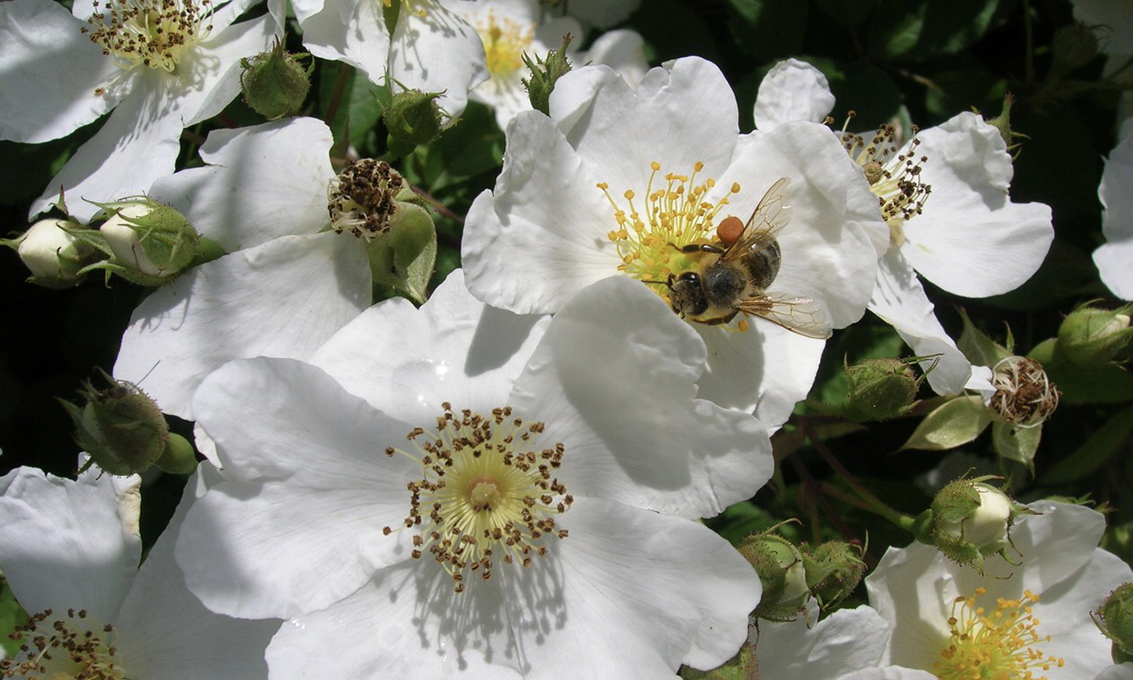The United Nations has declared 20 May World Bee Day, something which I, as a beekeeper, am of course delighted. There is a pressing need for action because bees and other insects make a vital contribution to protecting our environment, pollinating plants and maintaining a healthy ecosystem. In Europe, 76% of food production depends on pollination by wild bees and honey bees, but wild bees, in particular, are under threat. The European Red List for bees classifies 9% of all species as threatened with extinction and a further 5% as potentially endangered. This development is mainly the result of a decline in biodiversity and the excessive use of insecticides.To tackle these problems at the European level, a resolution on the protection of bees and other pollinators was adopted this weekend at Antwerp’s egp summit. However, there are a few simple things we can do in our gardens or on our window sills to help these hard-working creatures:
(1) Buy local, seasonal and organic food
Getting your vegetables by ordering an organic box, buying directly from farmers or even growing them yourself, rather than just going to the supermarket, is one of the simplest and most effective ways of protecting pollinators. In this way, you can contribute to the development of more sustainable farming that does not involve the use of pesticides and genetic engineering techniques that are toxic to bees and thus promotes biodiversity.
(2) Avoid using pesticides
Replace chemicals with green alternatives. For example, the targeted introduction of fragrant herbs and plants can keep pests away. For instance, mint protects cabbage varieties against caterpillars, and slugs don’t like thyme and rosemary. Insects such as ladybirds and lacewings, frogs, hedgehogs and birds are also natural pest control agents.
(3) Helping the bees
To ensure that bees have sufficient food throughout the year, it makes sense to plant as many different varieties as possible with different flowering periods in the garden. Bees prefer native wild plants, most of which are also better suited to our soils and climate. It is also easy to set up a drinking trough. All you need is flat, water-filled receptacle, with some small stones in it to stop the bees drowning.

(4) Giving wild bees a roof over their heads
Shelters help bees to build nests or protect themselves from bad weather. As bees find fewer and fewer locations that offer natural protection, such as in deadwood, dead plants and stone walls, one possibility is installing a bee hotel in a quiet place. Care is needed; however: insect hotels or nesting aids can become death traps if they are not designed correctly, for example, if the wrong types of wood are used. Expert advice can be found here and here.
(5) Protecting swarms of bees
If a swarm of bees has taken up residence close to your home, the best thing to do is get in touch directly with a local beekeeper, who will take in the swarm.
I would also recommend that you buy your honey directly from your local beekeeper because this would help safeguard domestic beekeeping. Of course, the honey will taste even better.
World Bee Day is a big day for a small creature that is particularly important to me. This is why I have put together these tips on what you can do for our hard-working bees to continue to help us by pollinating the plants that give us our food.
20th of May – have a Happy World Bee Day!

